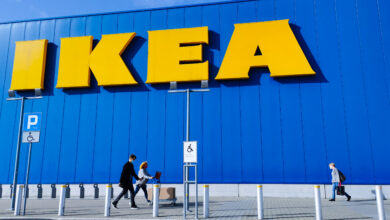Russia’s war on Ukraine has drained the EU’s weapon stockpiles and showed it lacks “critical” capabilities to protect against the threat on its border, the bloc’s foreign policy chief said Thursday.
“This war against Ukraine has been a brutal wake-up for many of us,” Josep Borrell told a defense conference in Brussels.
“We realise that our military stockpiles have been quickly depleted due to years of under investment.”
European allies have funneled arms worth billions of dollars to help Kyiv defend itself against the Kremlin’s forces since the start of the invasion in February.

Moscow’s full-scale assault on its neighbor has refocused attention on the strength of the EU’s own defenses that suffered from years of underspending after the Cold War ended.
“We realize that we lack critical defense capabilities. We lack the capabilities that we need to defend ourselves from a higher level of threats,” Borrell said.”
“We are facing threats, real threats, close by and (they are) likely to get worse.”
EU member states have bolstered their military spending since Moscow annexed Ukraine’s Crimean peninsula and unleashed conflict in east Ukraine in 2014.
But Borrell insisted the bloc’s 27 members need to keep stepping up spending and bolster their joint procurement and investment in technologies to make up for shortfalls.
“For me the choice is obvious. We must cooperate more, European armies have to cooperate more among them,” he said.
“We need to continue supporting Ukraine. We need to continue addressing the present needs and we need to start preparing the future.”
There have long been calls, spearheaded by France, to bolster Europe’s own defense capabilities and better integrate its armed forces.
But EU states still remain heavily reliant on the United States to provide security on the continent under the umbrella of the NATO military alliance.
Washington has sent tens of thousands more troops to Europe to reassure its allies since Moscow’s February invasion and NATO has boosted deployments along its eastern flank.












